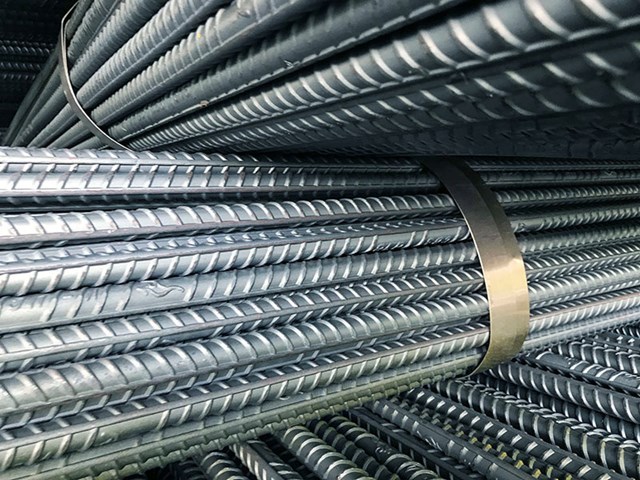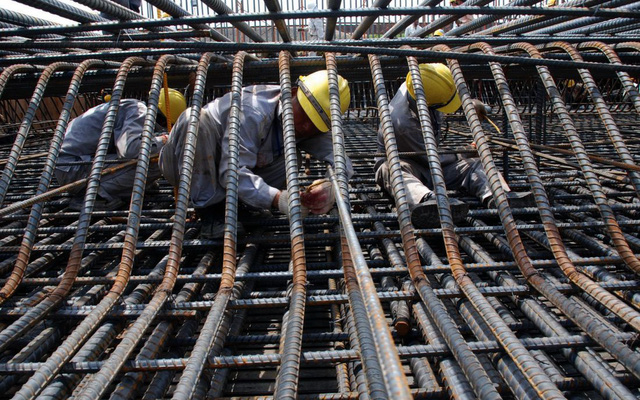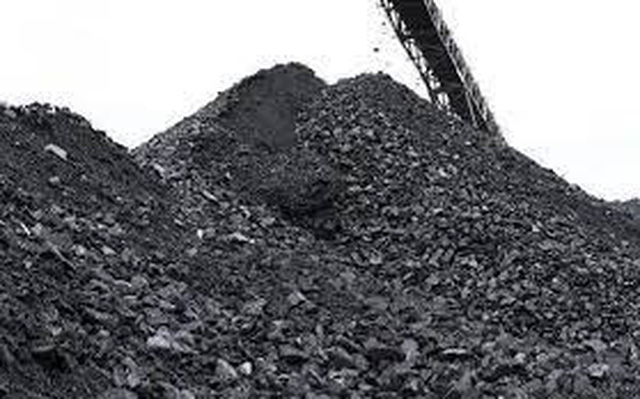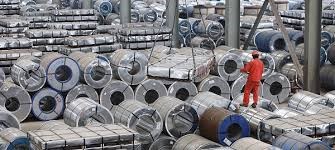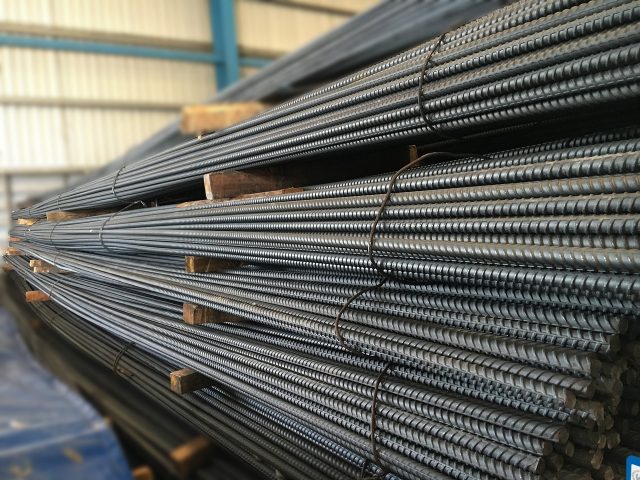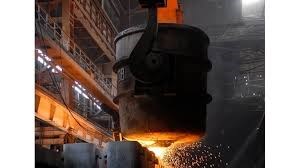The debt crisis of China’s real estate industry has now spread to another important “lifeblood” of the billion-people economy – the steel processing industry. Furthermore, influence has also begun to appear in other sectors of the economy.
Steel prices turn to fall
This year, Beijing has continuously tightened lending regulations, leaving many real estate companies with huge debts, most notably China Evergrande Group. Others have to withdraw investments to save cash.
The liquidity shock of the country’s leading real estate companies is a warning to policymakers because the steel industry, which is closely related to the real estate sector, has a great influence on the economy. with the strength of the economy.
Currently, steel prices in China have fallen significantly from the record high at the beginning of the year as demand from construction activity declines, and shares of steelmaking companies are also affected. Normally, the real estate sector accounts for more than half of steel consumption.
Steel’s sensitivity to the construction and manufacturing sectors makes the industrial metal an indicator of the health of the world’s second-largest economy. Steel companies are also major employers in the job market.
Mr. Qi Xiaoliang, a Beijing-based steel trader, said: “We usually stock goods in winter at a relatively lower price and sell them after the New Year holiday when consumption is up. Now our store has to temporarily stop stocking more steel.”
“The real estate market in 2022 is still very volatile, and the situation is not expected to be completely reversed within the next six to 12 months,” Xi stressed.
In the final quarter of 2021, the real estate market suffered even more damage as homebuyer sentiment weighed down. Unsold housing inventories in China’s 100 largest cities hit a five-year high in November.
According to analysts’ forecasts, people’s demand for homes in the world’s second-largest economy will fall further in 2022. This affects not only steel but also a wide range of product manufacturers. is different.
Compared with the same period last year, the output of cement – another construction material, has decreased by about 16% in the period of September – November this year. Demand for excavators has also declined in recent months. Or in the home appliance industry, monthly refrigerator production also decreased continuously from May to November compared to the same period last year.
The fortunes of steel firms are reversed
In the first three quarters of 2021, steel manufacturers have always been among the best performing enterprises in China. The 28 largest steel companies (listed) earned more than 106 billion yuan ($16.61 billion) in net profit, up 174% year-on-year and 129% higher than pre-pandemic .
However, the boom period of the steel industry is over. New construction projects have been falling since July this year, marking the longest decline since 2015. The paralysis of the real estate industry has caused China’s monthly steel output to fall by more than 20 % from September.
Steel industry stock indexes and commodity futures both show that the fortunes of steel firms have reversed, Reuters reported.
After surging about 90% through mid-September, the CSI steel industry stock index lost 27%. Elsewhere, rebar and construction steel futures prices fell 24% and 31% respectively from their historic peaks, erasing almost all of the gains achieved in 2021.
When steel processing companies face a drought, input materials are also affected. On the Dalian Commodity Exchange, iron ore futures are down more than 45% from their peak in May this year.
Unpredictable prospects
The real estate-related sectors are the largest contributor to the Chinese economy, accounting for 28% of GDP in 2021. Still, this figure is still down from the 2016 peak of 35%.
According to Moody’s, the share of GDP is broken down into 7% direct contribution from the real estate industry and 21% indirect contribution from the construction sector as well as sectors along the supply chain such as machinery and equipment.
Reuters, citing information from a Chinese government consulting firm, predicts that the country’s steel demand will decrease by about 4.7% this year and then drop by 0.7% next year.
Going forward, any new liquidity shocks could “reduce demand for construction steel as real estate companies can no longer afford the material at high prices”, Fitch Solutions analysts note. specified in another report.
If investment in the construction sector continues to decline, manufacturers of machinery and household appliances will also suffer.
“Real estate construction has been the engine of China’s economic growth for more than two decades. As construction continues to slow down, economic growth will inevitably slow down,” said Frederic Neumann. co-head of economic research at HSBC.
T&G International Joint Stock Company
Address: 352 Hue Street, Le Dai Hanh Ward, Hai Ba Trung District, Hanoi
Hotline: 0345786803
Email: hrm@tginterjsc.com
Website: http://tginternationaljsc.com





